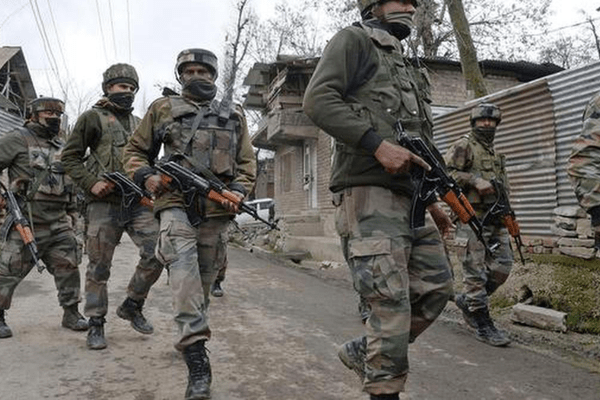Armed Forces Special Powers Act (AFSPA) has been extended in certain districts of Arunachal Pradesh and Nagaland for an additional six months.
About AFSPA (Armed Forces (Special Powers) Act):
- AFSPA was established in 1958, allowing the armed forces to help maintain law and order in regions labelled as “disturbed areas.”
- The designation of an area as “disturbed” permits the use of military force to support civil authorities.
Authority to Declare “Disturbed Areas”
- Under Section 3 of AFSPA, an area may be declared “disturbed” if it’s considered necessary for the armed forces to assist civil power.
- This declaration can be made by the Central Government, the State’s Governor, or the Union Territory’s administrator.
Special Powers Granted by AFSPA:
- Use of Force: Armed forces can prohibit gatherings of five or more persons, use force, or even open fire after giving due warning.
- Arrests Without Warrant: They can arrest a person without a warrant and enter or search a premise without a warrant based on reasonable suspicion.
- Seizure of Firearms: The possession of firearms can be banned.
- Immunity From Prosecution: Armed forces are immune from prosecution unless the Union Government provides sanction to the prosecuting agencies.
Regions Affected by AFSPA:
- AFSPA is currently enforced in several areas, including Jammu and Kashmir, Assam, Manipur (excluding the capital city of Imphal), Arunachal Pradesh, and Nagaland.
- Specifically, in Arunachal Pradesh, it affects Tirap, Changlang, and Longding districts, along with areas bordering Assam.
- In Nagaland, it includes districts like Mon, Kohima, Dimapur, Kiphire, Phek, and Zunheboto.
Legal Immunity under AFSPA
- The act provides armed forces with immunity from prosecution unless there is prior sanction from the Central Government for actions taken under AFSPA.
Supreme Court Judgment on AFSPA:
- In the 2016 case “Extra Judicial Execution Victim Families Association v Union of India,” the Supreme Court ruled that there is no absolute immunity for army personnel from trial by criminal courts for offences committed under AFSPA.
Ref:Source
| UPSC IAS Preparation Resources | |
| Current Affairs Analysis | Topperspedia |
| GS Shots | Simply Explained |
| Daily Flash Cards | Daily Quiz |
Frequently Asked Questions (FAQs):
What is the Armed Forces Special Powers Act (AFSPA)?
The Armed Forces Special Powers Act (AFSPA) grants special powers to the Indian Armed Forces in “disturbed areas” to maintain public order and security.
When was the Armed Forces Special Powers Act (AFSPA) first enacted in India?
The Armed Forces Special Powers Act (AFSPA) was first enacted in 1958 to address insurgency in the northeastern states and has been amended to cover other regions experiencing unrest.
How many states in India have AFSPA?
It be extended to the whole of the State of Arunachal Pradesh, Assam, Manipur, Meghalaya, Mizoram, Nagaland and Tripura.



